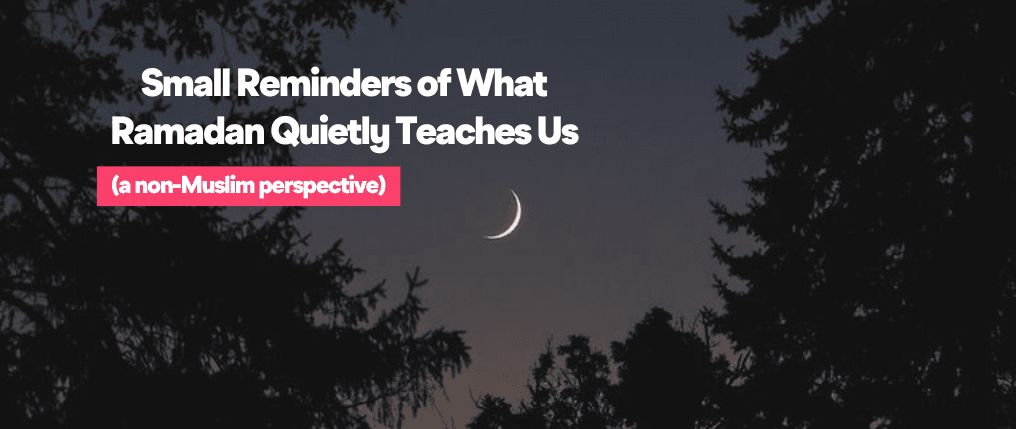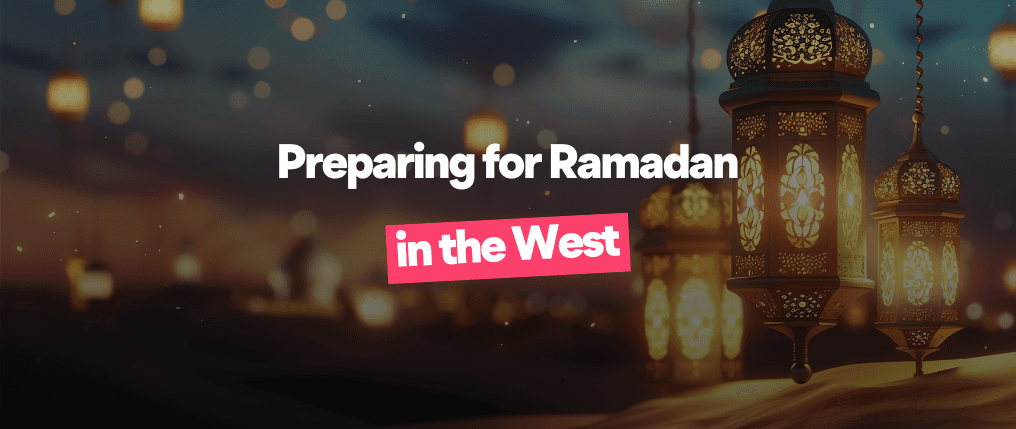
Small Reminders of What Ramadan Quietly Teaches Us (A non-Muslim Perspective)
Every year, I’ve watched my Muslim friends move through Ramadan with intentionality and grit.They’ve told me it’s not just about hunger. It’s about discipline. About patience. About purification. About becoming more aware of what you consume, what you say, and how you carry yourself. It’s about gratitude. It’s about restraint. It’s about community.From the outside, it has always seemed like more than just a fast. It’s a reset.This year, Muzz has launched an initiative where for every day a non-Muslim employee fasts, the company donates £100 to a charity of our choice. Because of this, I decided to try fasting for the entire month. I’m about a week in now, and in a small way, I’ve been able to experience what so many people around me return to every year.Here are some of the quiet reflections this month has already given me.
1. The body is stronger than we think.Continuing to work full days, attend meetings, and move through responsibilities without food or water until sunset has been humbling. A week in, my body has started adjusting to the new rhythm.What once felt intimidating now feels manageable.It’s made me realize how quickly we underestimate our own resilience. When there’s purpose behind discomfort, the body adapts. That alone feels like a powerful reminder of what intentional discipline can unlock.
2. We consume far more than we realize (not just food).One of the biggest surprises for me has been noticing how much I consume on a normal day.Not just meals, but also media. Music. Scrolling. Background noise. Constant input.Because fasting already requires awareness, I’ve tried to reduce some of that consumption too. Less music. Less passive scrolling. And what’s been left behind is stillness.It’s made me aware of how rarely I allow myself to sit in silence. Ramadan has created space where there is usually noise. That space has felt grounding and peaceful thus far.
3. Speech requires just as much discipline as hunger.Fasting isn’t only about what enters the body; it’s also about what leaves the mouth.I’ve noticed how easily I swear, complain, or speak impulsively. During this month, I’ve been trying to pause before reacting. Trying to speak more mindfully. Trying to withhold the sharper comments that come easily in everyday life.It’s uncomfortable, but revealing.It’s easy to normalize gossip, sarcasm, or unnecessary criticism. But intentionally holding back has shown me how much power there is in restraint and choosing not to say everything that comes to mind.
4. Hunger sharpens gratitude.By the time it’s time to break my fast, I’m convinced I could eat a horse. But in reality, I’m full much sooner than I expect.A few bites. A few sips of water. And I feel satisfied.Water tastes different when you’ve waited for it all day. Food feels less routine and more meaningful.It’s made me reflect on how often I eat out of boredom or habit. How often abundance feels ordinary. Hunger, even temporarily, reframes that.
5. Structure creates clarity.There’s something powerful about knowing your day is built around intention. From sunrise to sunset, there’s awareness. There’s accountability.It has made me more conscious of my habits overall. What I reach for when I’m tired, stressed, or bored. Ramadan doesn’t just remove food; it exposes patterns.In that exposure, there’s clarity.
6. Community is what makes the month special.One thing I’ve felt deeply this past week is how communal Ramadan is meant to be.Because my family isn’t Muslim, I don’t break my fast surrounded by others who are fasting too. I don’t wake up in a household moving together toward suhoor. I don’t naturally experience the shared rhythm that makes the month feel collective.And I’ve realized how meaningful that must be.Fasting alone can feel quiet. Almost isolating at times. It’s made me appreciate how powerful group iftars, mosque visits, and family meals must be. I’m hoping to attend at least one mosque night and join friends’ family iftars as the month continues, because even from the outside, it’s clear that community is part of what makes Ramadan transformative.I’m only a week in, and I know I’m experiencing just a fraction of what this month holds for those who observe it every year.But even in this small participation, I’ve gotten clarity.For those moving through Ramadan right now, I hope these reflections serve as small reminders of the quiet work this month is doing beneath the surface.Ramadan Mubarak.































